What's the Lesson Here?
In this age where change is the only constant, it is said that the surest way to keep pace with disruption is to embrace lifelong learning, as NUS is doing via several alumni-centred initiatives.

Much has been made of the staggering changes in today’s fourth industrial revolution. Innovative technologies such as the Internet of Things and artificial intelligence are driving the confluence of the physical, digital and biological worlds at an exponential rate. Younger, digitally-connected millennials and Gen Z are amassing more influence and purchasing power, even as demographic trends point to an ageing global population. We now live in an age of disruption, where all industries and countries are scrambling to adapt to a volatile, uncertain, complex and ambiguous
(VUCA) world.
What does this mean for Singapore and its higher education landscape? At the macro level, the Government is leading the push to transform Singapore into a Smart Nation. It is also encouraging citizens, young and old, to take ownership of their learning, both for personal enrichment and to enhance
their career prospects as they contribute to the Smart Nation ambition. Universities have a crucial part to play in this endeavour, given their role in preparing students for the workforce and instilling in them a lifelong love of learning. Indeed, this emphasis on lifelong learning has led to an expanded institutional focus for NUS — and, by implication, deeper engagement between the University and its alumni.
TOWARDS A SMART NATION
In Singapore, efforts to harness the positive impact of technological disruption are underway through its Smart Nation vision. By implementing key strategic projects such as building e-payment platforms and deploying autonomous vehicles, the Government hopes to advance the city-state’s economic competitiveness and liveability. National initiatives like SkillsFuture and Adapt & Grow have also been launched to promote lifelong learning among Singaporeans of all ages, so that they can upgrade their skills and take on new jobs in existing and emerging industries.
The latest figures show that many Singaporeans are proactive in charting their own learning and career paths. More than 285,000 working adults have utilised the SkillsFuture Credit scheme to date, with many pursuing infocomm technology courses at substantially-discounted rates. And out of the 24,000 individuals who found jobs in 2017 through Adapt & Grow, 3,300 underwent the Professional Conversion Programme to reskill themselves and move into new occupations or sectors.
Speaking at the recent May Day Rally, Prime Minister Mr Lee Hsien Loong urged mature workers in particular to take advantage of these initiatives amid the ongoing economic restructuring and changing job demands. “For younger Singaporeans not in the workforce, you will have sound education and market-relevant skills that will be sought after in the job market. For those already in the workforce, especially the older ones, we look out for you, and support you with all these schemes and programmes, [to] make you more employable,” said the Prime Minister.
Mr Lee’s remarks on “sound education” call attention to the importance of universities in equipping pre-employment learners with the requisite knowledge and skills to succeed in tomorrow’s workplace. This is certainly true of NUS — however, it only tells half the story. While NUS continues to be a leading provider of undergraduate education, the last few years have also seen the University upping its efforts in serving adult learners through continuing education and training (CET).
v1.jpg?sfvrsn=6c0627da_2)
In your career, we will be your anchor for lifelong learning so that you can make sense of the future economy, and your future jobs.
Prof Tan Eng Chye, NUS President
STUDENTS FOR LIFE
The tone for NUS’ lifelong learning strategy was set by NUS President Professor Tan Eng Chye (Science ’85) as soon as he assumed office early this year. In a speech delivered on 5 January, Prof Tan said, “To our students, we say that NUS is committed to helping you grow as a person. NUS will be here for you, for life. In your career, we will be your anchor for lifelong learning so that you can make sense of the future economy, and your future jobs. We aim to empower you so that you can give back to the community, to help others succeed.”
He also outlined NUS’ plans over the next five years to “re-imagine teaching and learning for the future”, including progressively opening up programmes to non-NUS alumni and gradually integrating adult learners into undergraduate and postgraduate classes. This is a continuation of Prof Tan’s efforts in his former capacity as NUS Provost to ramp up the University’s foray into the CET space, most notably through the launch of the School of Continuing and Lifelong Education (SCALE) in 2016.
Having become the NUS Senior Deputy President and Provost, Professor Ho Teck Hua (Engineering ’85) is eager to further strengthen this commitment to lifelong learning. “NUS sees CET as an integral part of our students’ education and personal development. The importance of CET or lifelong learning is heightened by the rapidly-changing VUCA environment,” Prof Ho tells The AlumNUS. “We at NUS are committed to serving our students and alumni over their entire career span by providing ready access to skills-based, industry-relevant courses necessary for upskilling or reskilling, so that they remain competitive and continue to make a significant and meaningful impact on the economy.”
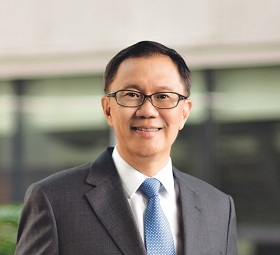
We at NUS are committed to serving our students and alumni over their entire career span by providing ready access to skills-based, industry-relevant courses necessary for upskilling or reskilling.
Prof Ho Teck Hua, NUS Senior Deputy President and Provost
LEARNING COMES IN MANY FORMS
Most NUS faculties and schools offer executive education courses in their respective fields. To give a few wide-ranging examples, two-day courses on enhancing public engagement and PR skills are available under the Department of Communications and New Media, Faculty of Arts and Social Sciences; the Institute of Systems Science conducts courses for digital professionals to keep abreast of technological and business trends; the Lee Kuan Yew School of Public Policy’s executive programmes aim to help people become more effective managers and leaders; and both open-enrolment and customised programmes are offered by NUS Business School for senior executives and organisations, respectively.
On the pedagogy side, new innovations in adult education are explored and disseminated by staff at several NUS institutions, such as the Institute for Application of Learning Science and Educational Technology (ALSET) and the Centre for Development of Teaching and Learning (CDTL). Even the alumni community occasionally organises lifelong learning initiatives for NUS graduates. At the NUS Society’s first-ever Active Ageing and Lifelong Learning Day this past April, participants joined a variety of interesting workshops, from picking up the ukulele and guitar to receiving health and wealth management tips.
SCALE is also making headway in the CET space through its spectrum of offerings for working adults. These include part-time Bachelor’s degree programmes, certificate courses and executive development programmes spanning across various disciplines and industries to support the SkillsFuture national movement. Today, SCALE is the largest provider of Data Analytics courses for the SkillsFuture Series.
A standout programme is the Lifelong Learning Initiative for NUS Alumni (LLINA), which is administered by SCALE. Under LLINA, NUS alumni can study up to two University-wide modules for free over a three-year period from 1 August 2017 to 31 July 2020. A total of 140 modules across eight schools and faculties were offered during the first-year pilot phase, with 8,000 applicants vying for the first batch of 400 seats in 79 modules in Semester 1 of AY2017/2018.
“Our computing- and business-related modules, such as data analytics and entrepreneurship courses, have been very well-subscribed because these skills are what the market demands of professionals in the workplace,” says Professor Susanna Leong (Law ’89), Vice Provost (Lifelong Education) of NUS, on LLINA. Encouraged by the positive response from alumni, NUS has rolled out a bigger, better programme — NUS Lifelong Learners (NUS L3) — which is eventually meant to replace LLINA.
THE 4Ps
“With NUS alumni adopting a lifelong learning mindset and CET becoming an institutional focus for NUS, NUS’ responsibility as a provider of university education will shift from preparing our students for ‘a career of a lifetime’ to ‘a lifetime of careers,’” says Prof Ho. The University is thus in the midst of redesigning its teaching delivery to accommodate adult learners, guided by four main principles:
- PATHWAY Varying pathways will be created for students and alumni to retool and upskill themselves.
- PACE Students and alumni will be allowed to learn at their desired pace.
- PEDAGOGY Backed by pedagogical research, focus will be given to the quality of teaching.
- PLACE ‘Learning on demand’ systems will enable students and alumni to learn at a time and place of their choice.

A FIRST-OF-ITS-KIND PROGRAMME
“We constantly disrupt our own thinking and challenge ourselves — what else can we do to encourage more of our alumni to embrace the lifelong learning mindset and make it easier and more intuitive for them to embark on this journey?” says Professor Wei Kwok Kee, Dean of SCALE. “The NUS L³ programme innovatively reconfigures the entire construct of NUS’ CET offerings, advancing it beyond merely lining up a suite of CET courses for subscription,” Prof Wei further notes. The unique features of NUS L³ include a ‘20-year enrolment’; one free module to encourage the first step towards lifelong learning; an attractive option to stack modules towards a second qualification; and a substantial suite of CET courses that cover current areas such as Industry 4.0.
The NUS L³ CET catalogue is carefully curated to ensure that the courses are skills-based and industry-relevant. Depending on shifting demands and industry needs, the modules on offer will be changed periodically. Those enrolled in the programme — including LLINA participants who continue with CET under NUS L³ — also have the option of stacking up courses to earn a second qualification. Such professional upgrading will give alumni a chance to take on new job responsibilities or pursue alternative careers in their area of interest.
In debating whether or not to return to study, accessibility of classes is usually the foremost factor on the minds of alumni. “The decision to go back to school for adult learners invariably involves trade-offs, as they also have to deal with work and family obligations,” says Prof Leong. To help them readily access the courses, blended-learning pedagogy combining physical classroom instruction and online materials will be employed. Other measures to create a conducive learning environment for alumni include a free first module, shorter semesters, as well as evening and weekend classes.
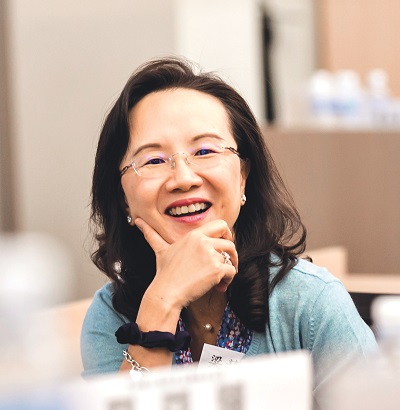
Our computingand business related modules, such as data analytics and entrepreneurship courses, have been very well subscribed because these skills are what the market demands of professionals in the workplace.
Prof Susanna Leong, NUS Vice Provost (Lifelong Education)
NUS L3
WHO IT IS FOR:
- NUS alumni + current and future students upon graduation. NUS’ student enrolment is valid for 20 years from the point of first admission to a Degree/ Graduate Diploma in NUS.
- Some courses are open to the public.
HOW IT WORKS – TWO PARTS:
1. SkillsFuture Singapore Funded Courses (including SkillsFuture Series Courses)
- Made up of modules and short courses in selected Industry Transformation Map clusters and matching eight priority and emerging skills areas: Data Analytics, Finance, Tech-Enabled Services, Digital Media, Cybersecurity, Entrepreneurship, Urban Solutions and Advanced Manufacturing.
- Funding support of 70% to 90% from SkillsFuture Singapore (SSG) for Singapore Citizens and Permanent Residents.
- Modules stackable toward a Certificate.
2. NUS Courses
- Made up of existing modules for NUS students and new modules designed specifically for adult learners.
- Funding support via virtual vouchers for one free module of the alumnus’ choosing; subsequent modules to be self-paid.
- Modules stackable toward a Graduate Diploma or 2nd Bachelor’s/ Master’s degree, when combined with Part 1 modules and/or Certificates.
About 500 courses in total for 1st edition of CET catalogue; more courses to be launched in phases.
WHEN IT STARTS:
- Applications open 1 July 2018
- 1st intake commences 13 August 2018
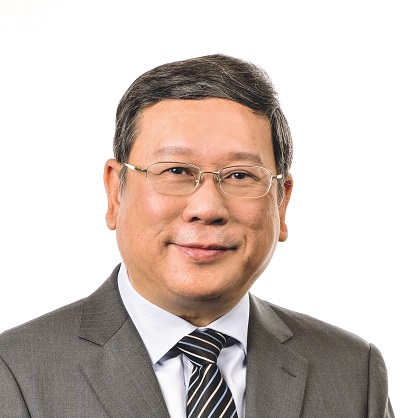
We constantly disrupt our own thinking and challenge ourselves— what else can we do to encourage more of our alumni to embrace the lifelong learning mindset and make it easier and more intuitive for them to embark on this journey?
Prof Wei Kwok Kee, Dean, NUS SCALE
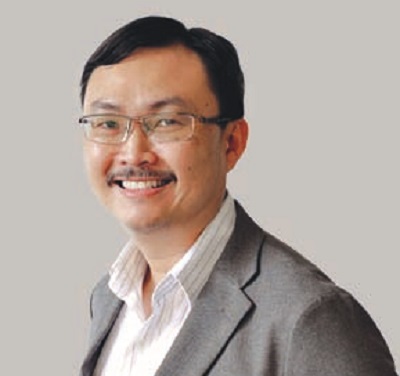
Having undergraduates and adult learners in the same classroom throws up the added challenge of combining pedagogy and andragogy.
Dr Chan Mun Kitt, Vice Dean (Executive and Professional Development) of SCALE.
Like LLINA, the non–SSG-funded courses under NUS L³ will bring together current and returning students, with NUS alumni comprising about 10 per cent of each class. For NUS faculty accustomed to educating undergraduates through a pedagogical or teacher-led approach, a different tack is needed in the case of adult learners with work experience. “Faculty members must be trained in andragogy, or adult learning principles, grounded in a facilitation-style method of teaching and self-directed learning,” says Dr Chan Mun Kitt, Vice Dean (Executive and Professional Development) of SCALE.
Dr Chan notes, “Having undergraduates and adult learners in the same classroom throws up the added challenge of combining pedagogy and andragogy.” SCALE is working closely with CDTL to develop an in-house training programme for faculty members, so that they can transit into this new model of education and serve both categories of students.
A DOSE OF REALISM
Without detracting from the importance of government- or university-initiated lifelong learning courses, a note of caution should be sounded for those contemplating taking that step. Attending a course and getting a paper qualification beyond one’s basic degree will likely improve an individual’s job prospects, or help in switching careers, but by no means is it a golden ticket to success.
For example, people often enter an MBA degree programme with the expectation that it will earn them a hefty pay raise. While this is not an entirely unfounded assumption — NUS MBA graduates earn an average annual salary of US$143,917 three years after graduation, with a post-graduation salary increase of 134 per cent, according to a recent Financial Times survey — not all MBA holders will achieve those figures. There are other factors that come into consideration, like whether they were selected or sponsored by their employer to embark on the programme, and how much professional experience they possess.
Ms Erin Wong, regional HR lead for a multinational IT company, believes that at the end of the day, nothing beats the work environment. “The reality is, no classroom or online learning is a replication of hands-on experience,” she explains. Especially now that digitalisation and automation are disrupting conventional business models, “companies need to be serious about providing opportunities for employees to take on projects outside of their job scope and continuously learn new skills on the job.”
Her message to working professionals? “Put your hands up and volunteer for projects or work in the area you are looking to upskill or reskill,” says Ms Wong. Corporate restructuring may raise fears of losing one’s job, or of being replaced by computers or machines, but “it is exactly during restructuring of a company that employees have the opportunity to proactively acquire new skills”.
Taking ownership of one’s career also means looking elsewhere for upgrading opportunities, if required. Ms Wong advises, “Should your company not provide any reskilling or upskilling opportunities, an equally effective route is to reach out to your [wider] network.” One’s alma mater, particularly an institution as reputable as NUS, is a great place to look.
BACK TO SCHOOL
TWO OF THEM HAVE TAKEN LIFELONG LEARNING COURSES AT NUS; THE OTHER TWO HAVE YET TO DO SO. EITHER WAY, THESE ALUMNI ALL LOVE TO LEARN
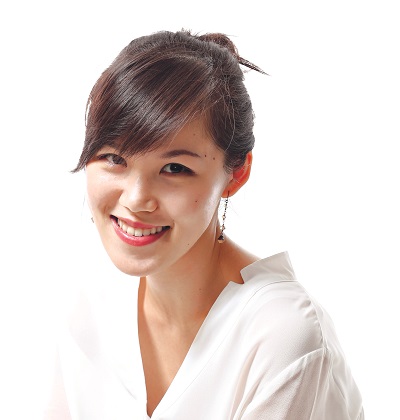
“To be honest, I had expected most of my learning to come from the course material or insights from fellow alumni classmates. But I was impressed by the business undergraduates. They seemed smart and knowledgeable, and knew how to utilise certain apps to enhance their presentations.”
Ms Leanne Lim (Arts and Social Sciences ’13), 28, a business development manager who took the LLINA module Strategic Management inAY2017/2018, Semester2

“I am trained in chemistry, but my line of work requires basic to intermediate Microsoft Excel skills for performing data analysis. The course covered areas such as the PivotTable function in Excel, decision tree analysis and simulations. It has been very useful for my job.”
Mr Timothy Joachim (Science ’17), 26, an administrative executive who tooktheLLINAmodule Decision AnalyticsUsingSpreadsheets in AY2017/2018, Semester 2
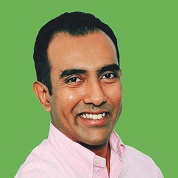
“I think NUS L³ is a great idea. It provides an additional platform for professionals to enhance their knowledge and skills. Lifelong learning is vital for mid-career professionals like myself to augment our existing skillsets and stay on par with the changing work dynamics.”
Mr Itmam Choudhury (Arts and Social Sciences ’99), 43, HR expert
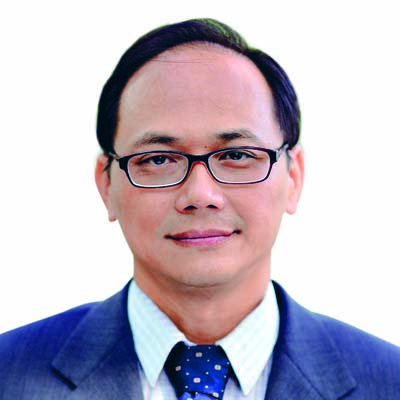
“My Bachelor’s and Master’s degrees in Electrical Engineering have made what I’m doing now easier, but I need to keep learning to keep up with new trends. Having used up my SkillsFuture Credit, I am interested in taking courses on data science, artificial intelligence and machine learning under NUS L³.”
Mr Sim Kwang Meng (Engineering ’98), 48, IT professional
HITTING THE BOOKS
To support the lifelong learning needs of alumni, NUS Libraries grants them free access to consult the physical collections in all eight of the University’s libraries. A Library membership is required for borrowing privileges, and NUS alumni are entitled to a considerable discount of the annual fee (see: nus.edu/2JPnZ48).
ATTENDING RESEARCHER UNBOUND WORKSHOPS
This series of workshops helps participants at various stages of their learning and research journeys. Examples of topics include how to ask relevant questions, tips and tricks to using Google, and how to spot fake news (more details: j.mp/RU_ABOUT).
REGISTERING FOR NUS LIBRARIES ONLINE COURSE
The course covers skills such as scoping and framing ideas, information and literature searching, as well as acknowledging sources. It resides online in NUS’ Integrated Virtual Learning Environment.
Look out for these seminars once the AY2018/2019 commences in August! For more information, visit lib.nus.edu.sg or write to askalib@nus.edu.sg.
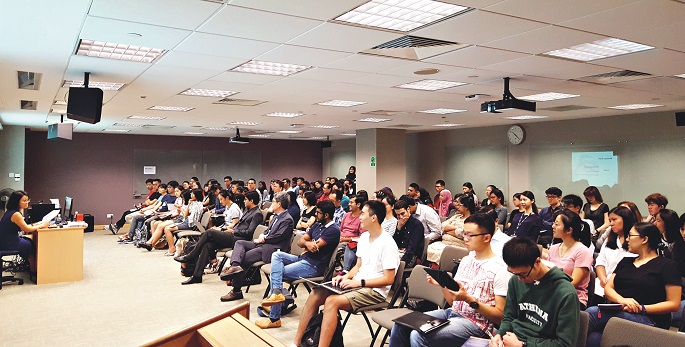 Participants attending a Researcher Unbound workshop.
Participants attending a Researcher Unbound workshop.
JOURNEY OF A LIFETIME
Through NUS L³, the University is further burnishing its credentials as a leader in education innovation — and both students and alumni are reaping the benefits. Alumni now have more recourse to lifelong learning so as to remain employable, and they can continue to contribute to the economy in a meaningful and impactful manner. NUS can also draw on their experiences and insights to make course offerings more in tune with market needs, creating a positive knock-on effect for undergraduates taking those courses.
With NUS expected to roll out other initiatives targeting different segments of adult learners in the future, more advantages await the alumni community. “Lifelong learning brings in another important dimension to the NUS–alumni relationship, beyond the social and other forms of engagement we already offer,” says Prof Leong. “There will be better vertical and horizontal integration, as alumni can connect with graduates from different cohorts in the classroom and also enjoy the flexibility of taking modules in various disciplines, resulting in a vibrant alumni culture.”